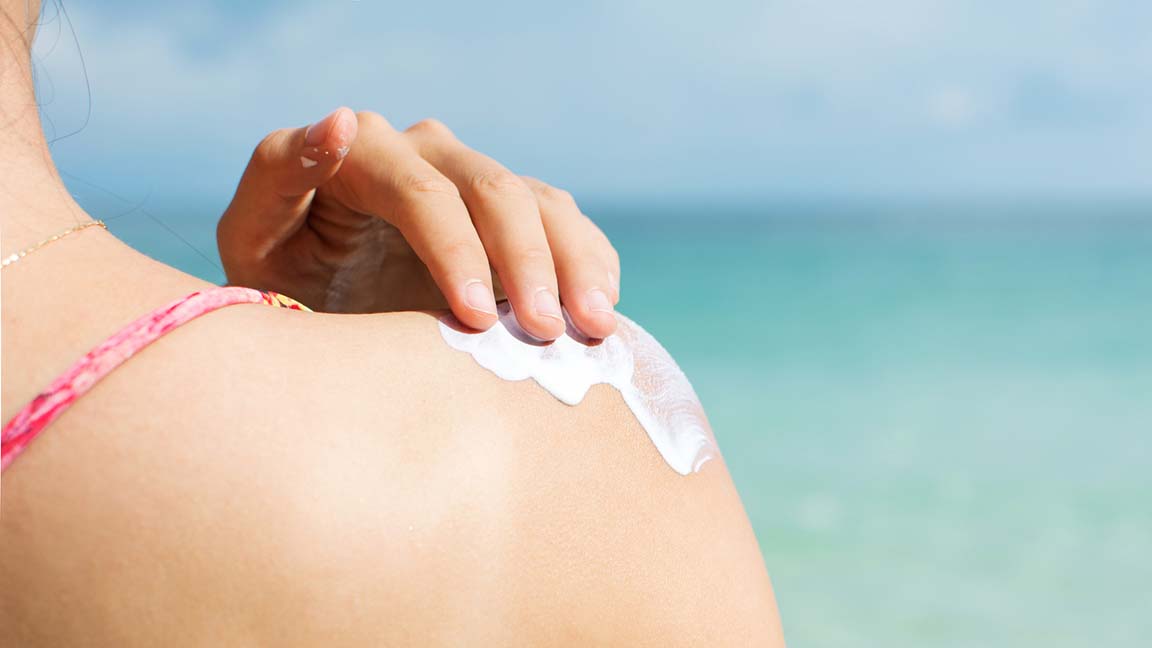Whether you’re preparing for an outing at the beach, time in the garden or considering a stroll through your neighborhood, protecting your skin from the sun’s harmful ultraviolet radiation should be a priority.
Since there’s a lot of area to cover when it comes to protecting your body’s largest organ with sunscreen, it’s easy to overlook some areas such as the ears, lips, around the eyes, the tops of the feet and the scalp.
But it’s important those spots get protection, too, says Dr. William Jackson Epperson, a family medicine physician who specializes in skin lesions and skin cancer at Tidelands Health Family Medicine at Prince Creek.
“It’s important to apply sunscreen to more than just the obvious spots on your arms, shoulders and nose,” he says. “Make sure to apply protection to all areas of your skin subject to the sun, including your forehead, ears, scalp, tops of your feet (depending on footwear), around your eyes and under movable straps and waistbands.”
To ensure you get the best coverage, especially around bathing suit straps, tank tops or swim trunks, use a spray sunscreen and let it dry before slipping into your swimsuit or clothes, Dr. Epperson says. Once you’ve applied your sunscreen, grab a wide-brimmed, tightly woven hat for your head and slip on sunglasses that offer 100 percent UV protection before heading outdoors.
“One of the more common things I see is that people apply sunscreen after they are dressed, then the bathing suit straps move or the swim trunks shift and those areas without sunscreen get some pretty bad burns,” Dr. Epperson points out.
Although applying sunscreen can take time, it’s important to protect yourself and your children from the sun’s harmful UV rays every time you’re outside for an extended period.
“Radiation damage is cumulative,” Dr. Epperson says. “The more you suffer sun damage to your skin throughout your life, the greater your risk of skin cancer.”
Dr. Epperson sees more sun damage and skin cancers in these areas, which are most often missed when applying or re-applying sunscreen:
- Foreheads: People tend to forget to re-apply sunscreen to the forehead if they’ve been perspiring in the heat, resulting in sunburns on this part of the face. If they don’t wear a hat, they are more prone to suffer sun damage in this area, so application and re-application are key, Dr. Epperson says.
- Ears: According to the Skin Cancer Foundation, ears are the third most common spot for skin cancer. Dr. Epperson says men are more susceptible than women for developing skin cancers on the ears because women often have longer hair that covers the ears.
- Lips: Men tend to experience sun damage on the lips more often than women because they don’t typically use lip care. Since many of today’s lipsticks and lip products contain SPF protection, women who use them are less likely to suffer lip burns. There are plenty of lip balms with SPF protection on the market that men, women and children can use. The important thing is to re-apply the product often, especially after eating or drinking.
- Around the eyes: Eyelids don’t typically burn, although they can, Dr. Epperson says.
The area around the upper eyelid, however, is an area vulnerable to sunburn. People may be reluctant to apply sunscreen around the eyes for fear of irritation, but there are moisturizers with SPF that would provide adequate protection without causing eye irritation. - Shoulders and waists: Sunburns in these areas occur most often because people forget clothing moves around, exposing sensitive skin unprotected by sunscreen. That’s why it is important to apply sunscreen before putting on clothing or a bathing suit.
When shopping for sunscreen, choose one with an SPF of 30 or higher, Dr. Epperson says.
“I think the sprays are best because of the coverage you’re getting,” Dr. Epperson added. “Lotions can leave racing stripes.”
Check the expiration date on your sunscreen because it can lose effectiveness over time. When applying, be sure to rub the product into the skin thoroughly, says Dr. Epperson.
Re-application is important, too, especially when perspiring in the heat, he says. Sunscreen should be reapplied at least every two hours when outdoors.
In addition to wearing sunscreen, Dr. Epperson suggests people try to avoid the sun during its peak hours of 10 a.m.-4 p.m. Remember that the only way to protect yourself completely from the sun’s UV rays is to avoid them.
“Keep sunscreen in your car, boat, wherever you are going to be,” Dr. Epperson suggested. “When you have it readily available, you’ll be more likely to use it.”
